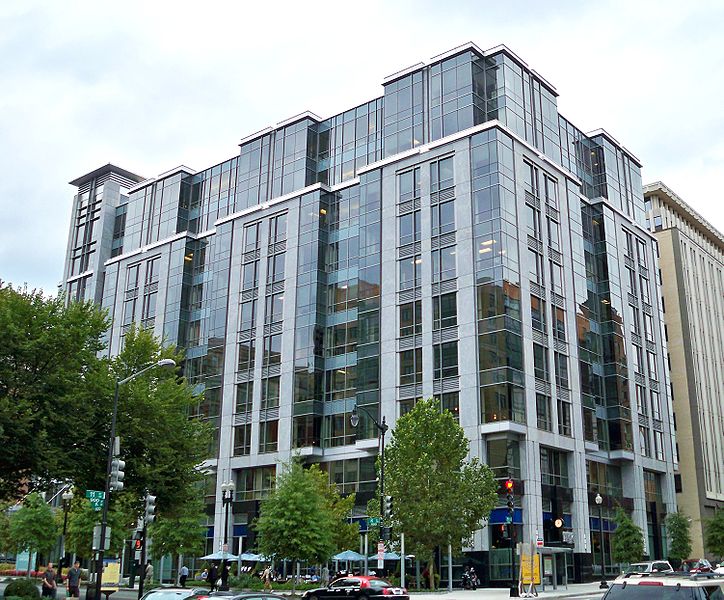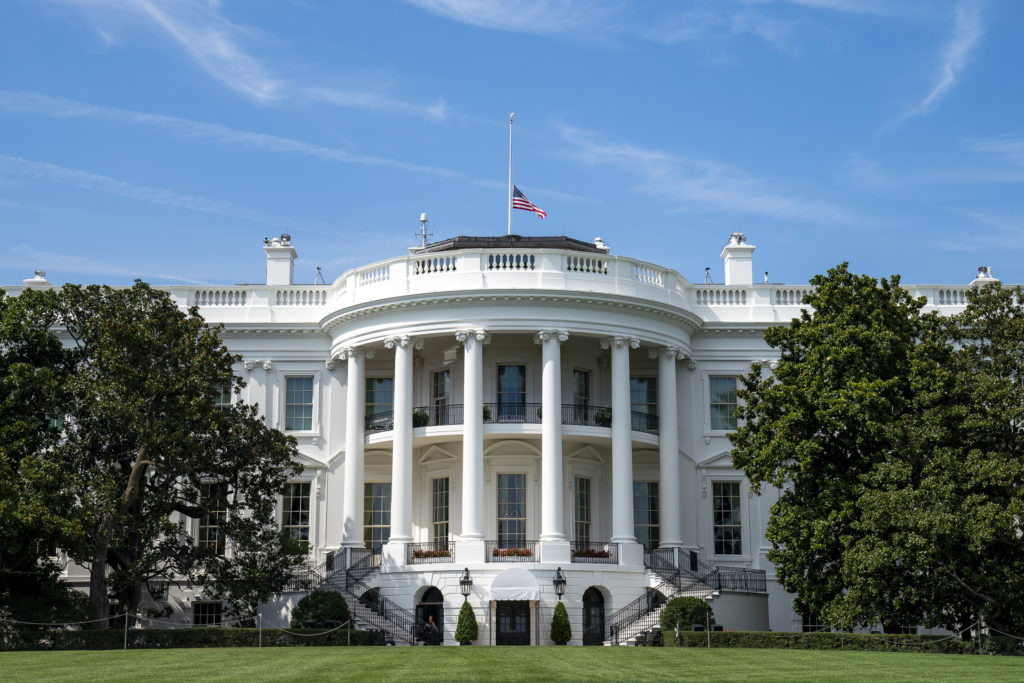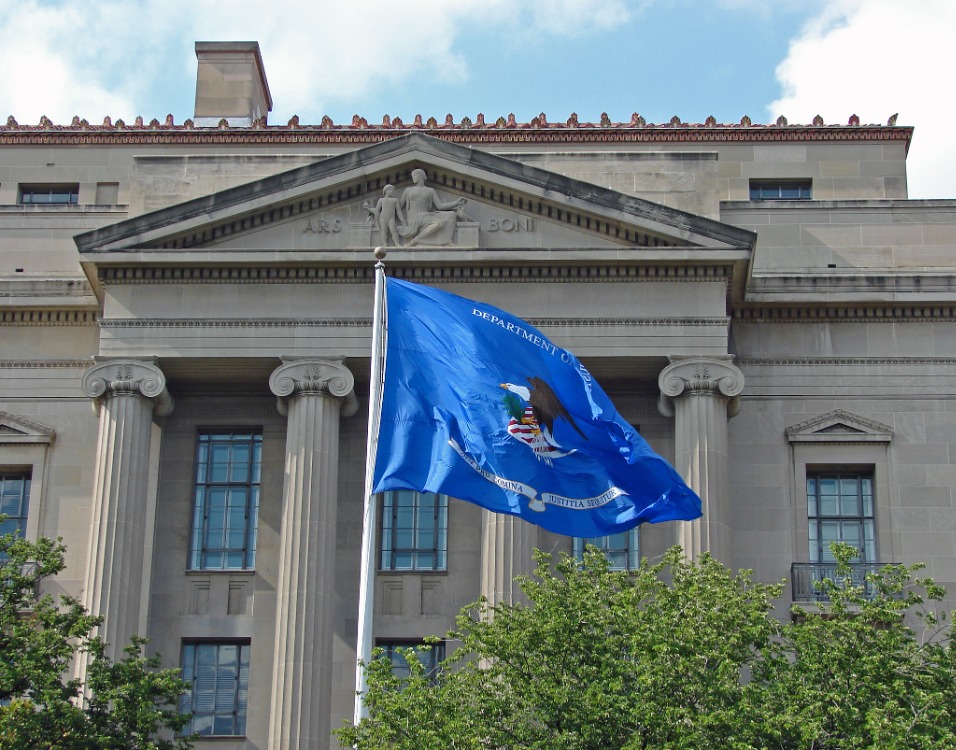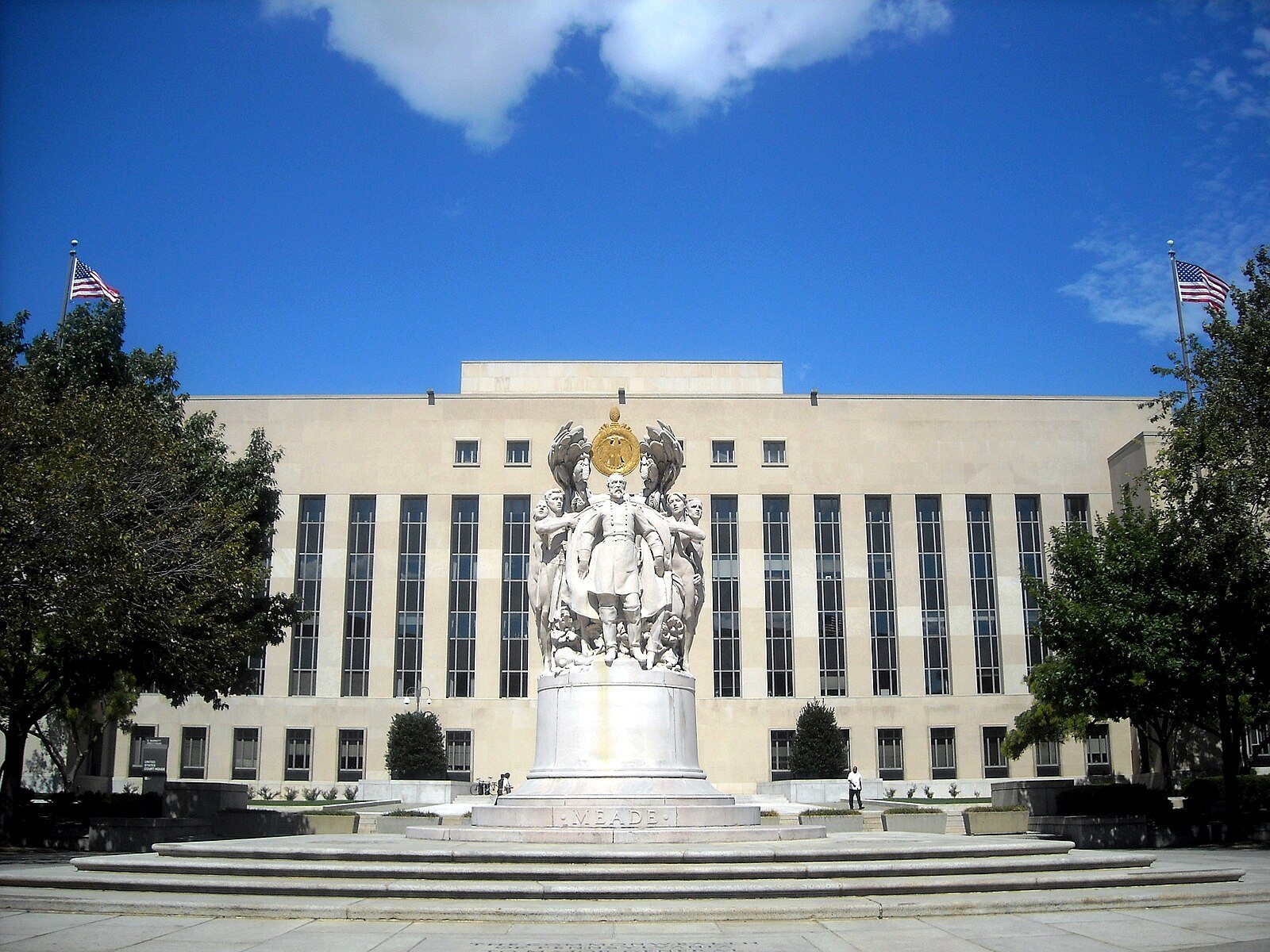Jeffrey Clark, Donald Trump, and Control of the Department of Justice

Published by The Lawfare Institute
in Cooperation With

Author’s Note: I have served as a member of several D.C. Bar hearing committees addressing disciplinary cases within D.C (though, obviously, I was not on the Clark hearing committee). For that reason, my discussion of the Clark case is intended to be descriptive and not a comment on the merits of the matter. I express no opinion on the correctness of the hearing committee’s recommendation or the likely outcome of the Clark disciplinary process. My intent here is simply to highlight a distinct issue in the seeming disjuncture of how the Court and the bar see Clark’s conduct.
***
On Aug. 1, a hearing committee of the District of Columbia Bar recommended the suspension of Jeffrey Clark from the practice of law for two years with reinstatement to be conditioned on demonstrating his fitness to practice law. Clark, one will recall, is the former Trump assistant attorney general who briefly seemed to be designated by Trump as acting attorney general at the Department of Justice, as part of Trump’s efforts to overturn the results of the 2020 election.
The committee’s disciplinary recommendation is just that—only a recommendation. It must still be considered and acted upon by the District of Columbia’s Board of Professional Responsibility. The board’s decision is, in turn, subject to review by the District of Columbia Court of Appeals, the highest local court in the District. Thus, the committee’s recommendation is merely the first word on the subject of Clark’s conduct, and the complaint against Clark will likely not be resolved definitively until next year.
Nevertheless, the committee’s recommendation has real significance, both for Clark personally and for the larger question of executive responsibility and the operation of the Justice Department. On the latter issue, the dissonance between the committee’s recommendation and the Supreme Court’s immunity decision in Trump v. United States is stunning. Clark is to be disciplined for conduct as to which the Court says Trump is immune. Though it is possible, logically, to resolve the dissonance without legal gyrations (if only on the ground that presidents are not their subordinates), the difference in outlook is, nonetheless, as stark a demonstration as possible of how differently the bar and the Court conceive of the law and the obligations of the president and the legal profession.
The Trump Case
The indictment against Trump that charges him with criminal complicity for the Jan. 6 events identified three interrelated strands of behavior at the heart of Trump’s alleged misconduct: his efforts through calls and meetings with state and local election officials to persuade them to block the election results, his speech on the Mall on Jan. 6 and its relationship to the resulting violence, and his efforts to persuade Vice President Mike Pence to refuse to certify the election.
Clark’s conduct relates directly to the first of these three categories—the alleged effort to falsify the results of the election. As detailed in Special Counsel Jack Smith’s indictment (paragraphs 70-85), part of the evidence on which the government intended to rely was evidence of Trump’s discussions with Justice Department officials about securing an official opinion suggesting fraud in the 2020 election.
Clark (known as co-conspirator 4 in the indictment) is alleged to have played a critical role in that effort by drafting a false claim about fraud in Georgia and discussing it with Trump. He is further alleged to have threatened other Justice Department officials, in an attempt to get them to sign off on the false claim to Georgia authorities, by telling them that Trump was planning to name Clark as acting attorney general if they did not accede to Clark’s request. Trump is alleged to have initially approved appointing Clark as acting attorney general because of the Justice Department’s failure to do anything to overturn the election results. Only the threat of mass resignations at the Justice Department appeared to have dissuaded Trump from placing Clark in charge.
All of that evidence must now be excluded from Trump’s trial (whenever it finally occurs) because of the Trump immunity decision. The Supreme Court held that evidence of alleged misconduct that implicates a president’s “exclusive authority” may not under any circumstances be “subject to … judicial examination.” Reasoning that the investigation and prosecution of criminal conduct is a core part of executive power, covered by the president’s “exclusive authority,” the Court wrote that “Trump is ... absolutely immune from prosecution for the alleged conduct involving his discussions with Justice Department officials” about those issues.
The Court went on to say that concerns for presidential power were so weighty that even evidence relating to that conduct must be excluded from trial, notwithstanding its probative value as to Trump’s state of mind relating to his allegedly criminal unofficial acts. In other words, all the interactions described by Smith involving Justice Department officials are likely to be excluded from Trump’s trial, including all the actions that Clark took at Trump’s behest. Some other portions of Smith’s charges will assuredly survive the Supreme Court’s decision (which includes some of the strongest evidence against Trump), but as for Clark, it seems likely that his conduct will go completely unmentioned.
Clark’s Disciplinary Case
Now look at the matter from Clark’s perspective. One can readily see the dissonance between the Supreme Court’s vision of presidential immunity and how the hearing committee viewed Clark’s actions. In effect, Trump is immune for speaking to Clark, but Clark may be disciplined for listening to him.
The hearing committee looked at much the same conduct as that alleged in the indictment (in much greater detail—see paragraphs 22-174 of the report, about 57 pages) and concluded that Clark violated Rule of Professional Conduct 8.4 by “attempting to send a letter” to Georgia election officials that included false allegations about the nature of that state’s election. The gravamen of the committee’s conclusion is that Clark was repeatedly advised of the falsity of his draft letter to Georgia and persisted in advancing that falsity and attempting to induce others to adopt it, notwithstanding evidence to the contrary.
In reaching this conclusion, the hearing committee rejected Clark’s arguments that his efforts were benign notwithstanding the possibility that he had a sincere belief in the veracity of his argument. In assessing his motivation and concluding that Clark’s beliefs were not objectively reasonable, the hearing committee relied on Clark’s course of conduct in drafting the letter, his discussing the letter with his Justice Department supervisors, and his seeking the former president’s support. Ultimately, as the committee put it, Clark “persisted in a plan so extreme that a room full of President Trump’s closest appointed advisors all considered it to be catastrophic.”
In short, in judging Clark’s misconduct, the hearing committee relied on precisely the same evidence that the Supreme Court said should be excluded from consideration at Trump’s criminal trial. And it used that evidence to conclude that Clark had engaged in professional misconduct—a conclusion that is the apparent flip side of adjudicating the appropriateness of Trump’s actions.
Needless to say, Clark has noticed the seeming conflict between these two visions. As the hearing committee recounted (pages 147-51), Clark asserted that the presidential immunity afforded Trump by the Supreme Court should also preclude disciplinary action against him. Clark argued that presidents act officially through their subordinates and, thus, that immunity for official acts should extend to those who assisted the president in his official capacity. The committee rejected Clark’s argument on the twin grounds that the Trump decision was limited exclusively to immunity for former presidents (citing, along the way, the criminal case against Bob Haldeman, President Nixon’s subordinate) and that it was, likewise, limited to immunity from only criminal prosecution and had no impact on civil or administrative matters. Accordingly, the committee concluded that Trump had nothing to say about subordinate executive branch employees’ immunity from disciplinary proceedings. (Clark has filed an interlocutory appeal to the District of Columbia Court of Appeals seeking to stay all further disciplinary proceedings against him. That appeal and stay motion are currently pending.)
Implications
What are the implications of the immunity decision and the bar proceedings for the future of presidential immunity and immunity for executive branch subordinates?
First, and most obviously, if the distinction drawn by the hearing committee between the president and his or her subordinates is ultimately upheld on appeal, the resolution may well cabin the adverse public policy impacts of the Trump decision. To be sure, the president might still act officially to, say, order SEAL Team 6 to kill a political opponent. But if the members of SEAL Team 6 are, themselves, still subject to criminal prosecution (and to noncriminal sanctions like dismissal from the military), then it seems rather unlikely that they would carry out the president’s unlawful order.
Of course, not all presidential orders will be as starkly illegal as the direction to carry out an assassination. And in the gray area there will remain much room for mischief. But if our general experience with criminal law is any guide, most executive branch subordinates will not want to risk the prospect of criminal charges—deterrence is just as real for the subordinates as it is for other criminal actors.
Second, and more problematically, the degree to which the prospect of criminal prosecution will restrain subordinates may be impacted by the ability of a president to abuse the pardon power. Prior to Trump, though nobody had ever tested the case, it seems plausible that a president was absolutely immune for issuing the pardon itself but that a president could, for example, have been charged with taking a bribe regarding the pardon, or with conspiring to violate a substantive law by, say, issuing a corrupt pardon in furtherance of a drug conspiracy. After Trump it seems to me manifest that, as Justice Amy Coney Barrett pointed out in her concurring opinion, even that corrupt exercise of the pardon power would be one of those core executive functions for which a president is absolutely immune.
At a corrupt worst, a president could grant pardons to subordinates for their criminal conduct after giving directions—for which the president is immune—to engage in that conduct. This confluence of circumstances—immunity for official orders, plus immunity for corrupt pardons in support of those illegal orders—might tend to make subordinate illegal conduct more likely. Obviously, the pardon power will not excuse state civil charges or collateral civil punishments (such as the suspension Clark faces), but by removing the possibility of the most severe punishment, presidents can, at the margins, influence the conduct of their subordinates.
Third, I wonder if there might be a special case to be articulated for subordinates who are attorneys, holding them to a higher standard than other subordinates. Which is to say that the disciplinary case against Clark might be different from, say, an administrative action against a member of the military. To begin with, the structural role of lawyers might mitigate the dissonance in treatment. While the president must have the “energy” to advance policy and make hard decisions, a Justice Department lawyer’s job is to make judgments about the law. It might make some sense for the president to have much broader immunity than a Justice Department lawyer.
Secondarily, lawyers like to think of themselves as unique. Perhaps we are; perhaps not. But any claim to a special role in society rests on our willingness as a profession to discipline those who violate our professional rules. Without accountability, the lawyer’s special role in society is eroded. Lawyers take an oath to stand as officers of the court, bound by a code of conduct and ethical requirements that do not apply to the public more broadly. They cannot, as a general rule, uphold that duty while engaging in dishonesty and lying to a court or legislature about the factual grounds for baseless claims. Thus, to the extent the specifications against Clark have been proved (and again, I make no judgment as to their factual accuracy), there is something to be said for differentiating lawyers from other presidential subordinates.
Finally, and most saliently, the conflict between the Supreme Court and the committee reflects a real difficulty in determining how to interpret and implement the Court’s immunity ruling. Clark is not without some justification in complaining that he is being subject to differential treatment—losing his license while Trump walks free. It may be that the differential treatment can be restricted in scope, that under Trump the president is a unique class of one who is not subject to many criminal statutes. And, to be sure, though giving an order and acting on an order are two sides of the same coin, they are, in fact, two different sides of the coin and logically distinguishable.
If that is ultimately how the law settles out, it will be odd, but not absurd. But the alternative—that presidential immunity spills over to the president’s subordinates, and especially to their civil and administrative liability—seems even odder. For now, the committee recommendation has effectively said that Clark (unlike Trump) is not even partially above the law. Only time, and further appeals, will tell whether that answer will hold.





